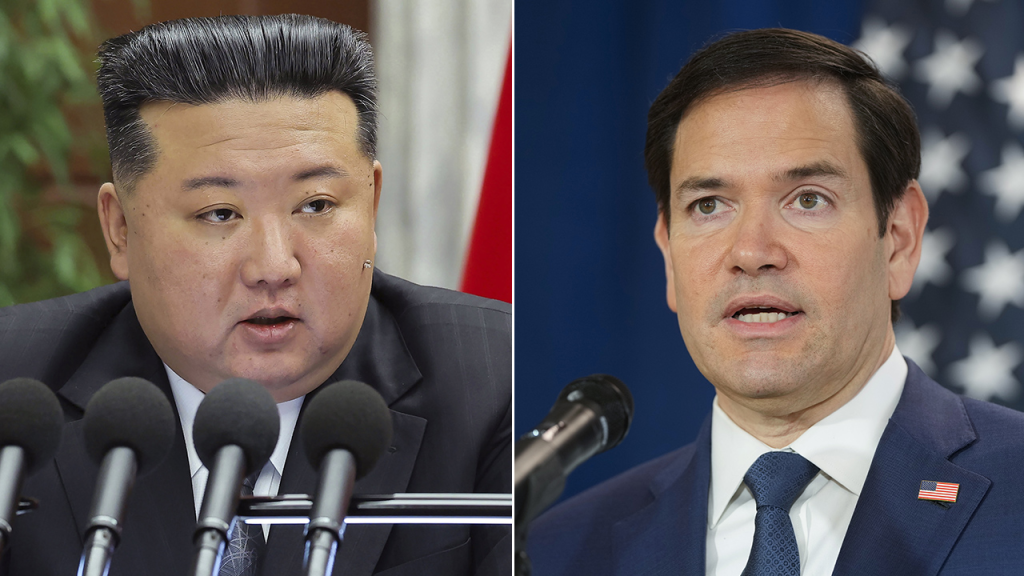The Democratic People’s Republic of Korea (DPRK), commonly known as North Korea, has vehemently denounced recent remarks made by U.S. Secretary of State Antony Blinken, who referred to North Korea as a “rogue state.” The North Korean Foreign Ministry, through a statement published by state media, characterized Blinken’s comments as “nonsense” and a “grave political provocation” that contravenes international law principles of respecting sovereignty and non-interference in internal affairs. This strong rebuke underscores the already tense relationship between the two nations and foreshadows potential challenges for the Biden administration’s foreign policy approach toward North Korea. Pyongyang’s response also highlights its sensitivity to being labeled a “rogue state,” a term often used to describe nations perceived as violating international norms and posing a threat to global security.
North Korea’s reaction further emphasizes the country’s perception of the United States as a perpetually hostile entity. The statement warns of “tough counteraction” against any perceived provocations from the U.S., echoing a familiar pattern of escalating rhetoric in response to perceived slights or pressure. This stance complicates efforts to engage diplomatically with North Korea, as any perceived criticism or pressure can be met with hostility and further entrenchment. The Biden administration will need to carefully calibrate its approach to avoid escalating tensions while simultaneously addressing concerns about North Korea’s nuclear ambitions and human rights record.
The context of Blinken’s remarks is crucial to understanding North Korea’s reaction. During an interview, Blinken discussed the evolving global landscape, characterized by the rise of multiple great powers like China and Russia, alongside “rogue states” such as Iran and North Korea. This characterization places North Korea in a category of nations considered outside the bounds of accepted international behavior. While Blinken’s broader discussion focused on the complexities of a multipolar world and the need to avoid armed conflict, North Korea fixated on the “rogue state” label, interpreting it as a direct attack on its sovereignty and a continuation of the U.S.’s hostile policy.
North Korea’s response not only criticizes Blinken’s specific comments but also takes a broader swipe at the Biden administration’s overall foreign policy approach. The statement suggests that Blinken’s remarks reflect an “incorrect view” of North Korea, implying a fundamental misunderstanding of the country’s motivations and intentions. This perception further complicates diplomatic efforts, as it suggests a lack of trust and mutual understanding between the two nations. Bridging this gap will require a nuanced approach that acknowledges North Korea’s security concerns while simultaneously addressing the international community’s concerns about its nuclear program.
The exchange between Blinken and North Korea underscores the challenges inherent in navigating the complex geopolitical landscape. Blinken’s remarks, while intended to address broader foreign policy goals, inadvertently triggered a strong negative reaction from North Korea. This highlights the sensitivity surrounding the use of labels like “rogue state” and the importance of careful diplomatic language, particularly when dealing with nations that perceive themselves as under threat. The Biden administration will need to tread cautiously to avoid escalating tensions while pursuing its foreign policy objectives.
The incident also serves as a reminder of the ongoing tensions on the Korean Peninsula and the potential for miscalculation and escalation. North Korea’s vow to take “tough counteraction” raises concerns about potential military provocations or further development of its nuclear and missile programs. The international community must remain vigilant and work towards a diplomatic solution to the North Korean nuclear issue while simultaneously addressing the underlying security concerns that drive its behavior. The path forward requires a delicate balance of firmness and engagement, with the ultimate goal of achieving denuclearization and lasting peace on the Korean Peninsula.

